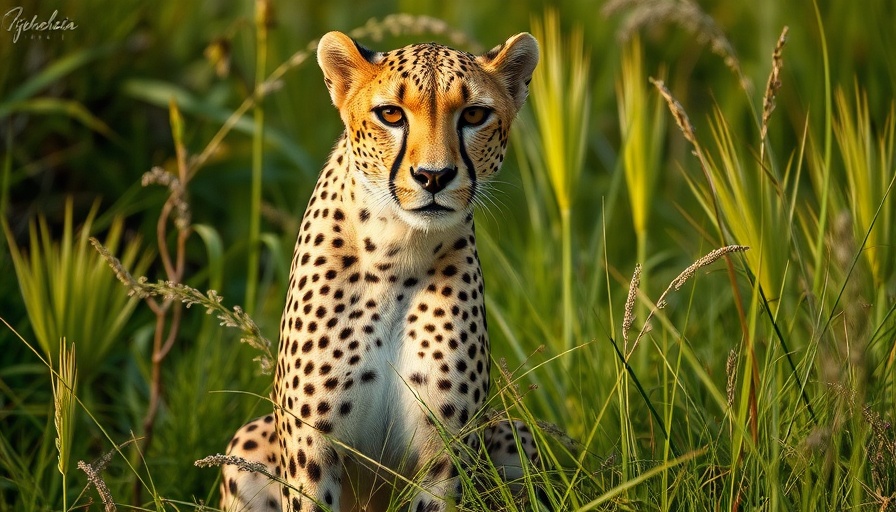
Worker's Gesture Sparks Disciplinary Concern
A video that has gone viral this week shows a worker from Kuno National Park in India offering water to a cheetah named Jwala and her four cubs, prompting significant media attention and controversy. While the intention behind the act may have been to help the animals during the dry spell, it has raised questions about human interaction with wildlife and the rules set by conservation authorities.
Understanding Wildlife Management Policies
As tourism and interactions with wildlife increase, parks must strike a balance between creating memorable visitor experiences and adhering to strict conservation policies. According to Uttam Kumar Sharma, Additional Principal Chief Conservator of Forests, there are clear guidelines in place. Workers are instructed to keep a safe distance from wildlife unless authorized to intervene. The disciplinary action taken against the worker highlights the importance placed on following these guidelines to protect both animals and humans alike.
The Fine Line: Compassion vs. Safety
The worker’s act can be viewed as an expression of compassion towards the cheetahs. However, it illustrates the complexities of wildlife management, where good intentions can lead to unintended consequences. Encouraging animals to come closer to human presence may lead to habituation, which can pose safety risks to both the wildlife and visitors in the park.
Impact on Local Eco-Tourism
This incident may have ramifications beyond disciplinary action; it could impact the perception of eco-tourism in South Africa and other regions focused on wildlife conservation. For travelers and tourists, understanding the delicate balance of interacting with wildlife is crucial. Ethical wildlife tourism should prioritize minimal human interference while promoting visitor engagement through educational experiences.
Local Perspectives on Wildlife Conservation
The connection between locals and wildlife is vital. While some may see the worker’s action as naive, others may empathize with their intention to care for vulnerable animals. Conservation is as much about protecting habitats and species as it is about fostering a community’s relationship with their native wildlife. Empowering local populations through education about appropriate interactions can lead to better outcomes for conservation efforts.
Future Implications for Travelers and Park Officials
As discussions surrounding wildlife management continue, both park officials and travelers must navigate these evolving regulations. Understanding proper conduct around wildlife is essential for ensuring safety and conservation integrity. Tourists visiting South Africa travel destinations, particularly those engaged in eco-tourism, should be educated about local guidelines—especially in parks like Kruger National Park or Kuno National Park.
Engaging with Sustainable Travel Practices
For those planning a trip, the incident underscores the need for responsible travel planning that respects wildlife boundaries. Seek out eco-tourism operators who emphasize conservation and provide training on how to interact safely with wildlife. By supporting ethical tourism practices, travelers can contribute to protecting South Africa's diverse ecosystems while enjoying its breathtaking scenery.
Let’s Move Forward with Awareness
The interaction between humans and wildlife can be both dangerous and rewarding. It is vital for both park workers and visitors alike to approach wildlife with care, adhering to established guidelines to prevent troubling incidents. As travelers plan their visits to South Africa travel destinations, they should consider how they can responsibly engage with the environment. This awareness not only enhances personal experiences but helps protect the stunning landscapes and biodiversity South Africa has to offer.
 Add Row
Add Row  Add
Add 




Write A Comment